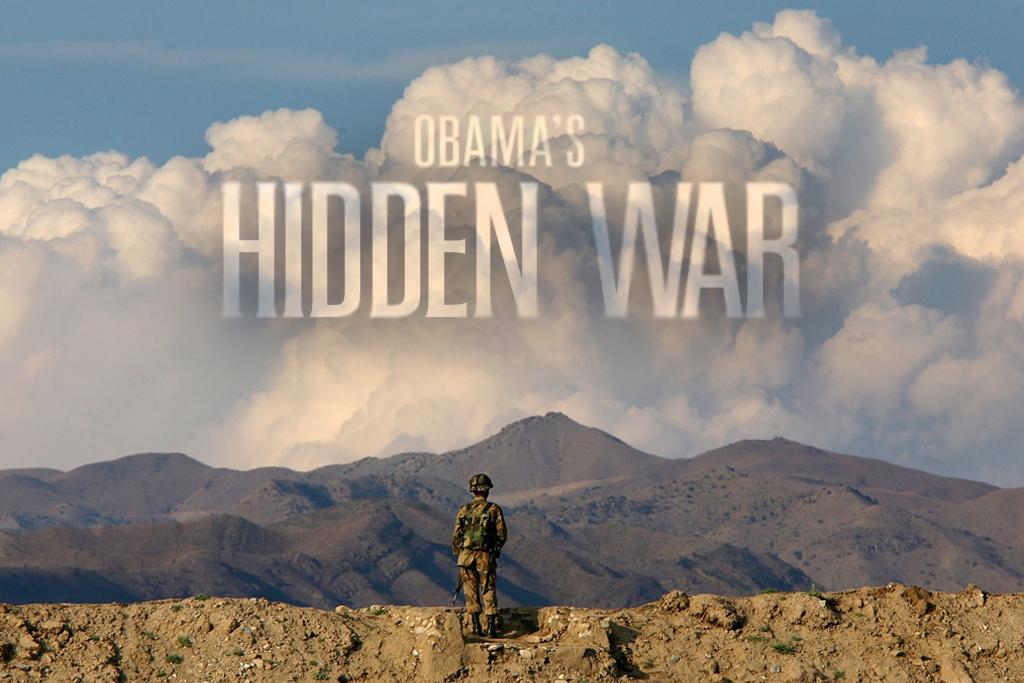Obama’s hidden war: US and Pakistan together forever
A Pakistani soldier looks out over the hills of North Waziristan.
ISLAMABAD, Pakistan — Pakistan’s government, despite publicly voicing its anger about ongoing U.S. drone attacks in North Waziristan, appears to be allowing them to occur at a pace that has reached its most frenetic since the unmanned air strikes first began in 2004.
In the last three weeks, since the killing of Osama bin Laden on May 2 by U.S. forces, there have been at least seven attacks launched by the Central Intelligence Agency inside Pakistan, killing dozens.
To many analysts here this comes as no surprise. They say the drone strikes will continue to increase in their frequency and that now, they will likely happen with the blessings of the Pakistani government.
Hamid Mir, an Islamabad-based security analyst, said the United States and Pakistan are planning to cooperate more closely than ever to capture and kill militants in North Waziristan and elsewhere in the country.
“You will soon see a targeted operation in Mir Ali, Datta Khel and some of the other parts of North Waziristan that are notorious for presence of militants, particularly those that are of foreign origin,” Mir said.
A joint statement on May 16 by U.S. Senator John Kerry, Prime Minister of Pakistan Syed Yousaf Raza Gilani and Army Chief of Staff Ashfaq Pervez Kayani appeared to confirm that the two countries would work together more closely going forward.
“In furtherance of its existing commitment to fight terrorism, Pakistan agreed to take several immediate steps to underscore its seriousness in renewing the full cooperative effort with the United States,” the statement read.
The statement points to a shift in the Pakistani government. Pakistan, in the past, regularly condemned the CIA incursions in North Waziristan, fearing a backlash from its citizens, who have grown weary of the CIA and its drone attacks that have killed hundreds of civilians.
North Waziristan, where the air strikes have been concentrated, is thought to be where many remaining Al Qaeda militants are hiding, along with militants belonging to the Haqqani Network, which has repeatedly launched attacks against U.S. and NATO troops fighting in neighboring Afghanistan.
If Pakistan does cooperate more fully with the United States, it could put itself in a difficult position.
“If it is implemented, Pakistan’s leadership will have to own the drone attacks, the bombings and any other military action taken by the United States against militants on Pakistani soil,” Anjum Rasheed, a Lahore-based political analyst, said.
“There will be no more choice to publicly condemn the U.S. and secretly support its actions on Pakistani soil.”
Talat Masood, a senior security analyst and former officer in Pakistan’s army, said things were never as bad between the two countries as has been portrayed in the media, adding that dismantling the Haqqani Network was in the interest of both the United States and Pakistan.
“My personal assessment is that Pakistan’s civilian and military leadership have understood after bin Laden’s death that the presence of such elements on our soil is of no use except embarrassment,” he said. “Therefore, the time has come to tell them that enough is enough.”
Mir said that Pakistan has already begun to send that message. He pointed to the killing on May 17 of five suspected Al Qaeda members from Chechnya — three of whom were women — by Pakistani security forces in Chaman, a town that borders Afghanistan.
Also on May 17, Pakistani forces arrested Mohammad Ali Qasim, a senior Al Qaeda leader from Yemen, in the southern port city of Karachi. Several Pakistani intelligence sources said that foreign militants operating in Pakistan were sensing the dangers and beginning to flee to Afghanistan and Iran.
“A strong message has been conveyed to the Haqqani Network and foreign militants based in North Waziristan that they are no more welcome in Pakistan,” Mir said.
The story you just read is available to read for free because thousands of listeners and readers like you generously support our nonprofit newsroom. Every day, the reporters and producers at The World are hard at work bringing you human-centered news from across the globe. But we can’t do it without you: We need your support to ensure we can continue this work for another year.
When you make a gift of $10 or more a month, we’ll invite you to a virtual behind-the-scenes tour of our newsroom to thank you for being with The World.
